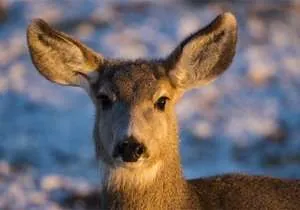Reserve your spot by Oct. 15
PRATT – Landowners and anyone interested in improving quail habitat on their property are invited to attend a quail habitat tour and free dinner Tuesday, October 21 at Melvern Wildlife Area, Reading. Starting at 4:30 p.m., a tour of completed and active habitat projects on Melvern Wildlife Area will be conducted, followed by a catered meal at the Reading City Building around 6 p.m., compliments of the Neosho Valley Quail Forever and Emporia Quail and Upland Wildlife Federation chapters. Those interested in attending are asked to meet at the Kansas Department of Wildlife, Parks and Tourism (KDWPT) office, 2272 Road 250, on the east side of Reading.
Following dinner, KDWPT staff will update participants on the progress of the Quail Initiative Project and present information on bobwhite biology and habitat management. Local Natural Resource Conservation Service (NRCS) personnel will also be on hand to discuss relevant cost-share programs available, as well as representatives from other local conservation organizations. The evening will wrap up with a time for questions, discussion, and the opportunity to sign up for habitat planning assistance.
The Kansas Quail Initiative is an effort spearheaded by KDWPT to implement additional funding in two areas of eastern Kansas to improve habitat for quail and monitor the changes over the next five years. The goal is to improve quail populations by 50 percent in these focus areas. The area of focus for this meeting includes the Melvern Wildlife Area and more than 190,000 acres in portions of Lyon, Wabaunsee, Osage and Coffey counties.
“We plan to offer 100 percent cost-sharing for landowners in these areas to implement ‘quail friendly practices’ on their land,” said Jim Pitman, KDWPT small game coordinator. “KDWPT has designated $100,000 each year to this effort and those dollars can be used to supplement the normal 75 percent cost-share rate from federal habitat programs. The bottom line is that landowners in this focal area will work with biologists to plan habitat improvements for quail and cost-share payments will cover all the costs,” Pitman added.
Some of the practices eligible for cost-share funding include native grass and forb planting, removal of invading trees from grasslands, prescribed burning, hedgerow renovation and prescribed grazing. During its first two years, the initiative has directly impacted nearly 1,300 private land acres and 4,400 public land acres.
To register for the tour and dinner, call (620) 342-0658 by October 15.
For more information on the Kansas Quail Initiative, contact KDWPT district biologist, Pat Riese, at (620) 583-5049.
Source: Kansas Department of Wildlife, Parks and Tourism




